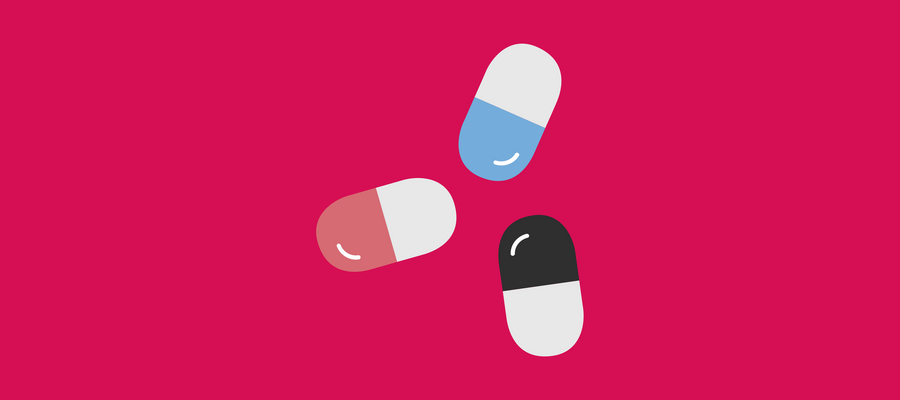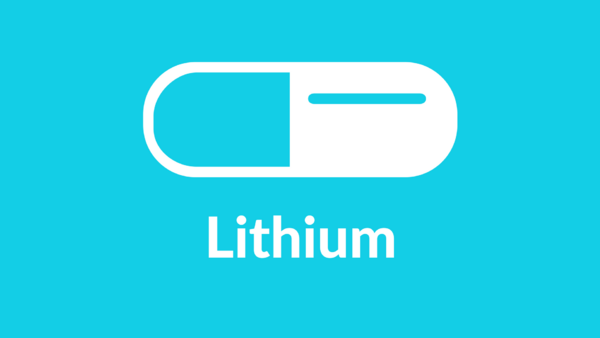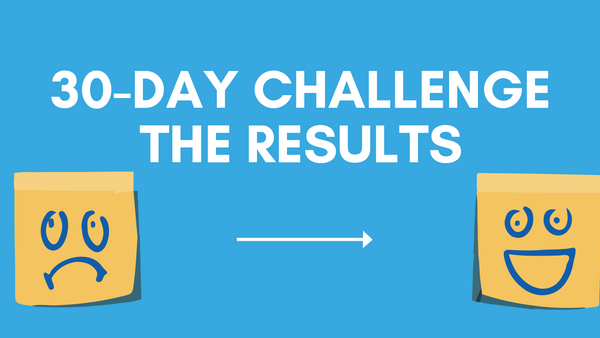
Tryptophan and anxiety
Tryptophan is an essential substance for the body to function correctly. It is used in the production of serotonin, which we believe helps to regulate our mood. Could low levels contribute to anxiety?
What is it?
Without making this article too much of a biology lesson, amino acids are the building blocks of proteins. Proteins are a critical component of the cells in our bodies.
There are hundreds of different amino acids, but there are 20 "standard" ones, of which nine are essential for humans:
- Phenylalanine
- Histidine
- Isoleucine
- Lysine
- Leucine
- Methionine
- Threonine
- Valine
- Tryptophan
The body uses tryptophan to make serotonin.
We cannot make tryptophan ourselves, so we have to absorb it from the things we eat.
How does it affect mental health?
Tryptophan is used in the production of serotonin. Serotonin is thought to be responsible for regulating mood, happiness and feelings of wellbeing. The class of antidepressants known as "SSRIs" work by helping the brain regulate serotonin.
A lack of tryptophan can lead to a lack of serotonin. Evidence suggests that increasing tryptophan can improve mood and reduce insomnia1.
Other studies are less confident. A 2011 study supported the idea that deficiency of tryptophan could cause low mood. However, it concluded there was only limited evidence that artificially increasing levels was an effective treatment2.
In 2001, a meta-analysis by Cochrane concluded that tryptophan could improve your mood3. They said:
"Available evidence does suggest these substances are better than placebo at alleviating depression. Further studies are needed to evaluate the efficacy and safety of 5-HTP and tryptophan before their widespread use can be recommended."
There are a few studies that specifically looked at anxiety. These also support the idea that artificially boosting the levels can reduce anxiety levels4.
A more recent study, published in 2015, also supported this idea5. However, the study only included 25 participants. They found that anxiety reduced within just two weeks when on a high tryptophan diet.
What are good sources?
- Bananas
- Walnuts
- Turkey
- Sunflower seeds
- Milk
- Eggs
- Cheese
- Brown rice
- Chicken
- Fish

Should I take supplements?
There is no a lot of evidence looking at the benefits of supplementation6.
This could be because it is considered a dietary supplement rather than a drug, so the drug companies are less interested in researching it. Or, it could be because antidepressants are already effective in increasing serotonin levels, so tryptophan supplements are redundant. The fact that there is research for Vitamin D or Vitamin B-12, for example, might suggest the latter.
If you are looking for an alternative to antidepressants, supplements could be a good place to start.
The University of Michigan has published guidance on it as a supplement7, with the following recommendations:
| Condition | Effectiveness |
|---|---|
| Insomnia | Strong evidence |
| Depression | Some evidence |
| OCD | Some evidence |
| Anxiety | Limited evidence |
You can buy the supplements over the counter. However, they are not widely available in most places, so you may have to do some digging.
Conclusion
Tryptophan is an essential component of a healthy and functioning human body. It is required to make serotonin, which helps regulate our mood and maintain good mental health.
Research indicates that increasing our levels can reduce anxiety. This is best done through diet by ensuring you eat foods that are naturally high in it. It can also be done via supplements.
Related articles
Metadata
Published 20 November 2017. Written by Chris Worfolk.
References
-
T. S. Sathyanarayana Rao, M. R. Asha, B. N. Ramesh, and K. S. Jagannatha Rao. Understanding nutrition, depression and mental illnesses. Indian J Psychiatry. 2008 Apr-Jun; 50(2): 77–82. doi: 10.4103/0019-5545.42391. Link. ↩︎
-
Parker G, Brotchie H. Mood effects of the amino acids tryptophan and tyrosine: 'Food for Thought' III. Acta Psychiatr Scand. 2011 Dec;124(6):417-26. doi: 10.1111/j.1600-0447.2011.01706.x. Epub 2011 Apr 12. ↩︎
-
Shaw K, Turner J, Del Mar C. Tryptophan and 5-hydroxytryptophan for depression. Cochrane Database Syst Rev. 2001;(3):CD003198. ↩︎
-
Bowen DJ, Spring B, Fox E. Tryptophan and high-carbohydrate diets as adjuncts to smoking cessation therapy. J Behav Med. 1991 Apr;14(2):97-110. ↩︎
-
Lindseth G, Helland B, Caspers J. The Effects of Dietary Tryptophan on Affective Disorders. Archives of psychiatric nursing. 2015;29(2):102-107. doi:10.1016/j.apnu.2014.11.008. ↩︎
-
Erick H. Turner, Jennifer M. Loftis, Aaron D. Blackwell. Serotonin a la carte: Supplementation with the serotonin precursor 5-hydroxytryptophan. Pharmacology & Therapeutics (2005) ↩︎

